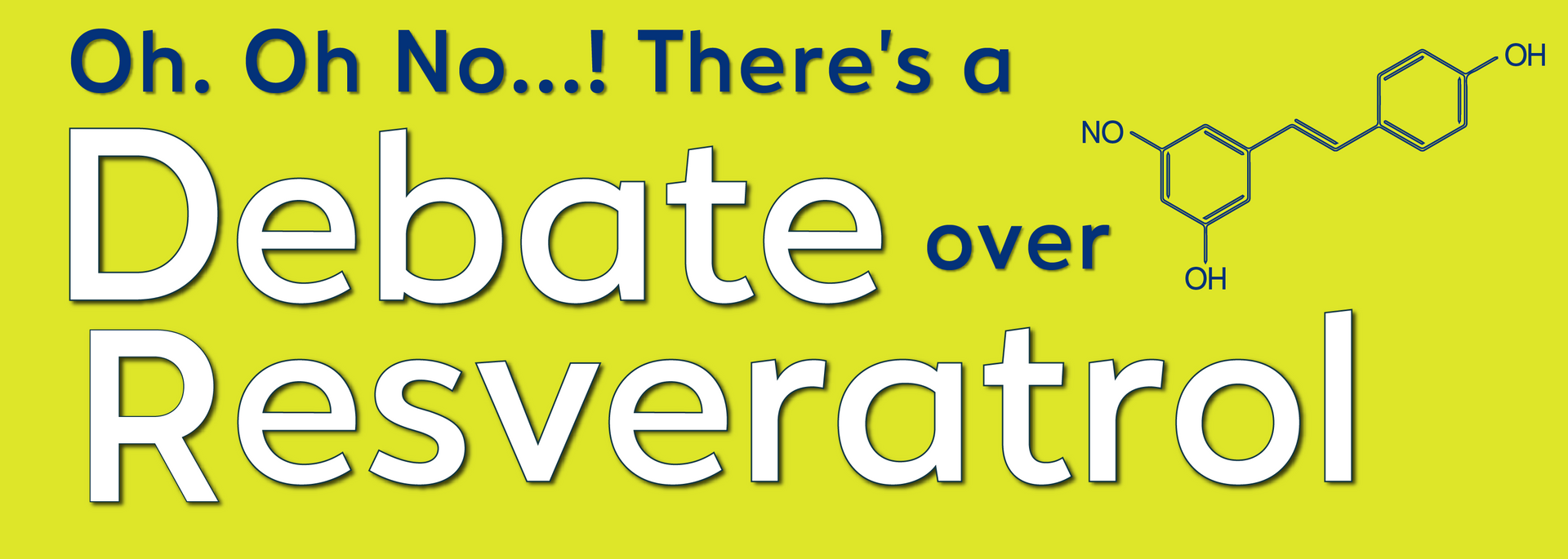The Debate Over Resveratrol
Some studies are indicating that Resveratrol actually slows our metabolism. That sounds counter productive. Is it, though...?

Last night, after spending hours writing the blog post on anti-ageing supplements, I was double checking my sources and discovered a controversy about resveratrol. I couldn’t let that gremlin cast a shadow on the credibility of my blog post so this morning I have looked into it.
And, here’s what I found.
Some studies are indicating that Resveratrol actually slows our energy expenditure meaning a decrease in our metabolism.
Resveratrol has become a controversial supplement. One side of the debate shows resveratrol has positive longevity effects and can enhance fasting. The other side are saying it's possibly doing some things to slow our metabolism.
A recently published study on obesity indicated that resveratrol can potentially reduce our energy expenditure. Our energy expenditure is another way of saying our metabolism. A higher energy expenditure would mean a faster metabolism.
A slower metabolism sounds counterproductive. If we want to burn fat and lose weight. It is important, however, to understand the biochemistry if we want to figure out what all of this means.
An energy expenditure decrease is not a bad thing. The study took a look at obese individuals and put them on a randomised blind crossover design study. That’s a very robust scientific study protocol. Participants were given either a placebo or 150 mg of trans-resveratrol for 30 days. They saw a lot of really interesting things with this study. For example, they saw an increase in AMPK within the muscle tissue which indicated that their bodies were behaving as if they were in a more fasted state.
There was also an increase in SIRT1 levels. SIRT1 is what potentially triggers FOX03 and other longevity effects within the body. There was also an increase in what's called PGC-1a protein levels. Specifically PGC-1a is what affects mitochondria and allows our mitochondria to go through biogenesis, therefore creating more mitochondria. More mitochondria means more energy factories in our body which means more places to create actual energy.
When we think about it like that, it's not a huge surprise that this same study found a 2% to 4% decrease in postprandial and basal energy expenditure. One might interpret this as bad because that means that it slowed down metabolism. When we're fasting or when we're trying to induce things like autophagy, we're trying to trigger our body to go into a restorative effect by ultimately reducing our energy expenditure. A slower metabolism doesn't mean that were burning less fat, per se, it does mean, however, that our body is becoming more efficient.
There is data to demonstrate that doing endurance work can actually decrease resting energy expenditure because the body and the cells become much more efficient at using fat, and have so much more mitochondria, that the process is streamlined. When we look at the resveratrol situation, decreasing energy expenditure in this particular case, it's really the effect we're wanting. We're driving up AMPK and that is potentially creating more PGC-1a activation, creating more mitochondria therefore making the body more efficient at utilising fuel.
It doesn't mean that it's bad and it doesn't mean that it's going to slow your metabolism to a screeching halt. You actually might find it gives you the potential to leverage that efficiency through exercise so that your body uses more fat.
A decrease in energy expenditure of 2% to 4% is more than compensated knowing that the body is running efficiently and effectively. It is important to know that when you want your body to burn fat, it’s going to burn fat. Choosing to not use resveratrol so you don’t lose 4% energy expenditure is at a cost of mitochondrial dysfunction and reactive oxygen species.
Resveratrol might have the effect of slowing down your metabolism a couple of percentage points but when you look at the benefits it's probably still worth considering.
It can be tricky to work out which supplement might be right for you. If you want to talk about what should be included in your supplement stack, get in touch with us HERE..
If you want to bring out your inner geek, have a read through this study.
https://www.nature.com/articles/srep21772










